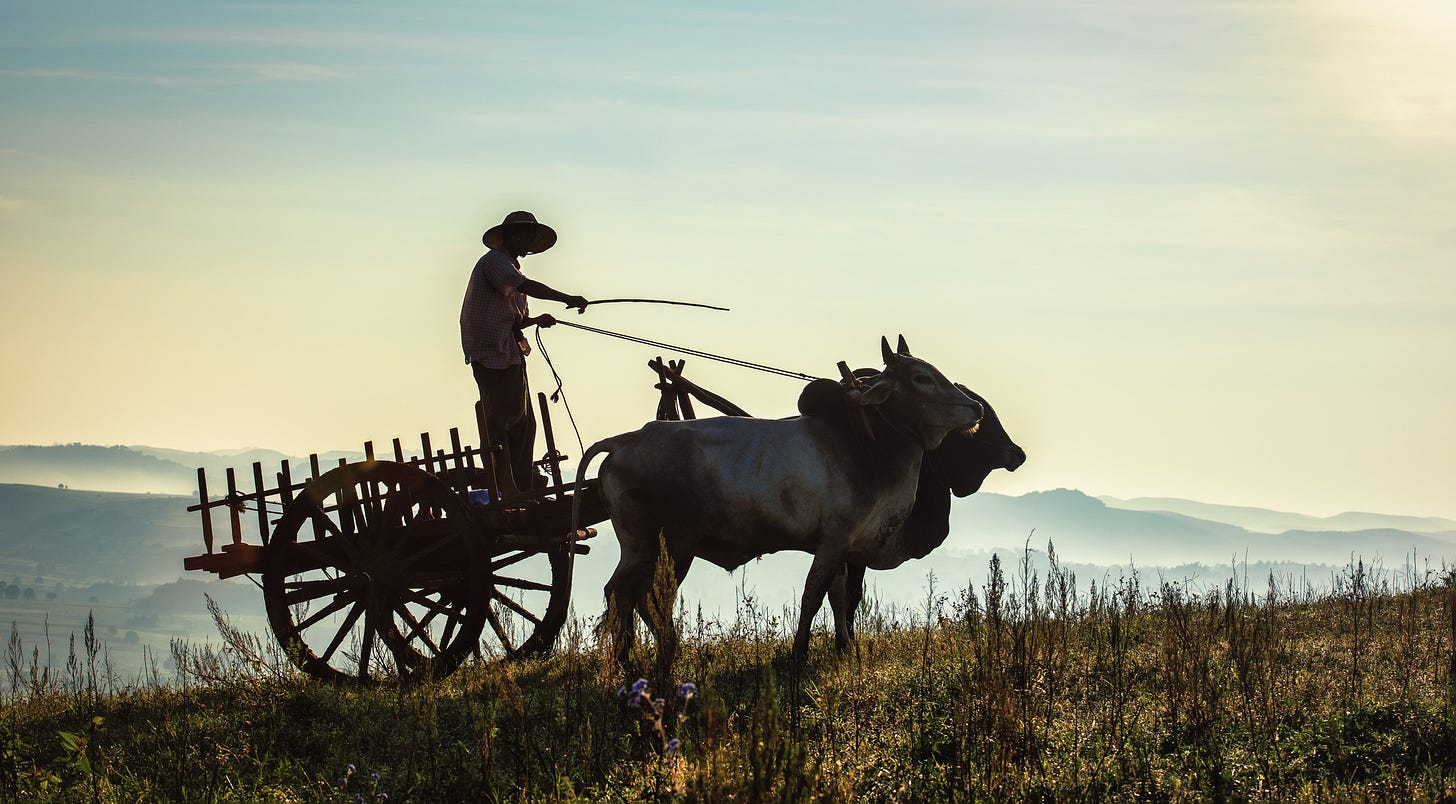Trump Received the Largest Bribe in U.S. History & Will Paying Women to have Babies Work?
May 20, 2025
What I’m Discussing Today:
Kareem’s Daily Quote: A rumination on getting rid of unnecessary stuff.
Trump’s New Air Force One? Why Qatar’s Luxury Jet Gift Draws Constitutional Scrutiny: When is a plane not a plane? When it’s all about establishing precedent for how much you can get away with.
Trump’s new pardon attorney says he will scrutinize pardons that Biden issued at the end of his term: Trump had to pull Martin as nominee as the top federal prosecutor for D.C. because even Republicans don’t like him. Now, he’s given a job that’s not needed, to spend money unnecessarily to persecute Trump’s enemies that can’t be touched. It makes no sense other than as a way to keep blaming Biden for Trump’s failures.
Kareem’s Kvetching Korner: Give birth? In this economy? US women scoff at Trump’s meager ‘baby bonuses’: Trump wants to bribe (the only language he speaks) women to have babies. But his offer is one easily refused.
Kareem’s Video Break: I can neither confirm nor deny that I’ve done the same thing this puppy is doing.
What I’m Watching: Miss Austen is a delightful respite for fans of all things Jane Austen, and Poker Face returns for a second season with more fun guest stars in a murdering mood.
Kareem’s Sports Moments: This guy deliberately jumped from a plane without a parachute. But he had a plan.
Maya Delilah Sings “My Balloon”: The song feels like you’re slowly drifting on a lazy river with your eyes closed and the sun warm on your face.
Kareem’s Daily Quote
and at home by fire’s light in November coldstitches new harnessfor next year’s ox in the barn,and carves the yoke, and saws planksbuilding the cart again.
from “Ox-Cart Man” by American poet Donald Hall (1928-2018)
This is the final stanza of Donald Hall’s poem “Ox-Cart Man” which tells of a rural farmer who loads his potatoes, wool, honey, linen, leather, and vinegar into his ox cart and walks for ten days beside his ox until he arrives in Portsmouth where he sells all of his goods, and then sells the cart, the ox, the harness, the yoke, and walks home with “his pockets heavy/with the year’s coin for salt and taxes.” I first read this seemingly simple poem in 1977 when it was first published, but it has stayed with me ever since. Now that I’m old, the poem’s meaning has even more effect on me. (Read entire poem here.)
I’m not the only one who has been deeply affected by the poem. The work was so popular that Hall turned it into a bestselling children’s book. The children’s book made some key changes. In the poem, the man does all of this alone, with no mention of a family. In the children’s book, he has a family who joyfully help him in making everything he sells, and for whom he buys gifts with his money. In the poem, the man is in a routine of survival, not living. In the book, he does everything for the benefit of his family.
Both of these versions haunt me. I’ve spent the last few years selling off, donating, and giving away much of what I’ve accumulated over the years. Sometimes, I look at my record collection or the books in my library and ask myself, “Why am I keeping them?” There are hundreds of records that I’ll never listen to again, hundreds of books I will never pick up again. I imagine all of the shelves empty except for maybe a few of my favorite records and books that I hope I will return to. (Though I catch myself listening to a song and wondering, “Is this the last time I will ever hear this song?”)
My friend moved with his family to a new house three years ago. They packed everything up and stored much of their furniture and belongings in three storage units. He only unpacked three pairs of pants, half a dozen shirts, a couple of pairs of shoes, and some socks and underwear. After the first year, he realized he didn’t need all of the clothes he had in storage and gave them away. Each year, they gave away more and more until they are now down to one storage unit and are preparing to give most of that away, too. It took them three years of doing without to come to the awareness that they didn’t need most of what they had stored.
Most of what I keep now is for my kids to have when I’m gone. I feel more like the curator of the Kareem Abdul-Jabbar Museum than having any attachment to the objects that cohabit my home with me. Forty-two years ago, a fire destroyed my home and most of my possessions. I was devastated. Today, I would be much less emotional. I would be annoyed at the inconvenience, sad that some of my legacy belongings for my children had been lost, but not as personally affected.
There is something to be said for getting rid of everything and starting fresh, because the person who filled the ox cart is not the same person returning with nothing. At the same time, I am very much the man in the children’s book who is excited whenever I can do something that will benefit or at least please members of my family, even though they are all adults now. Maybe it’s that desire—let’s call it love—that I bring back from the market that is more valuable than any object I could carry.





